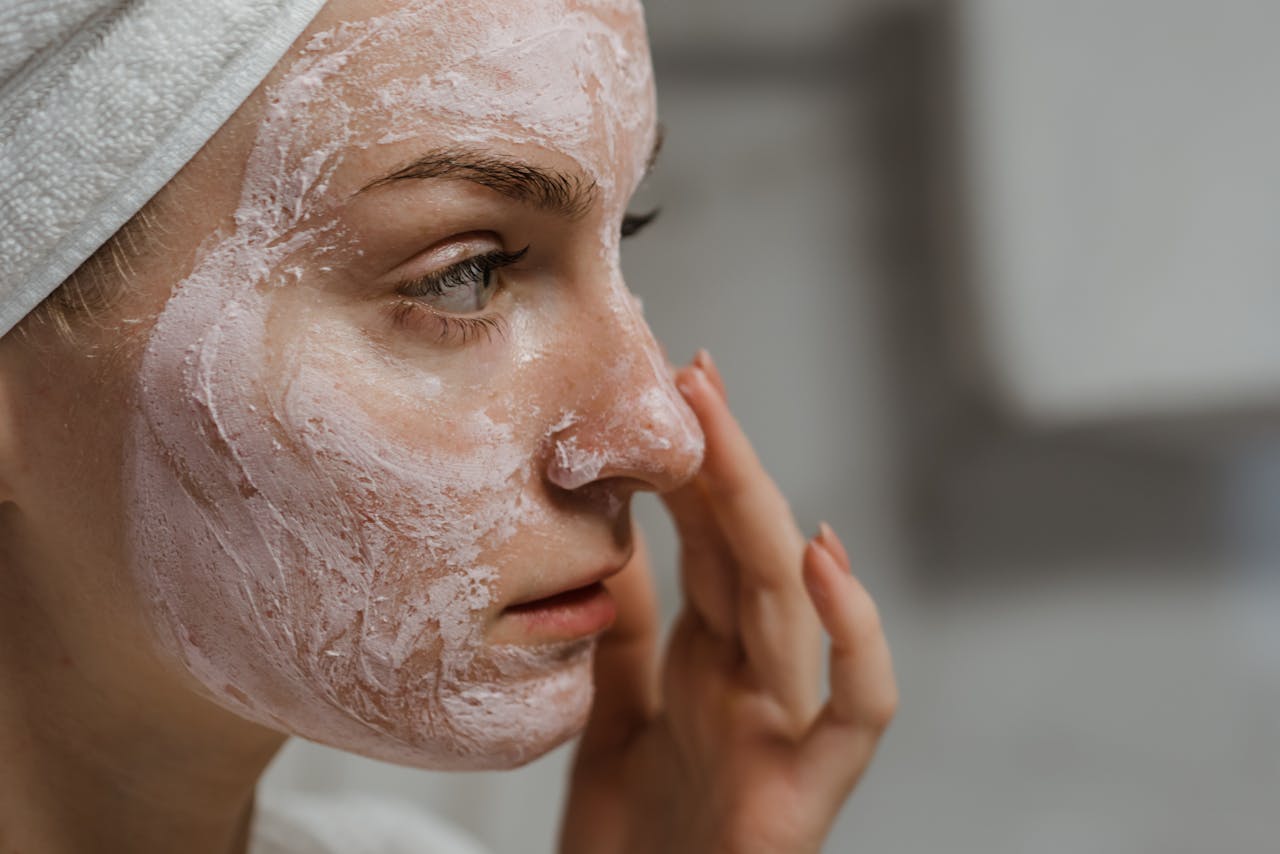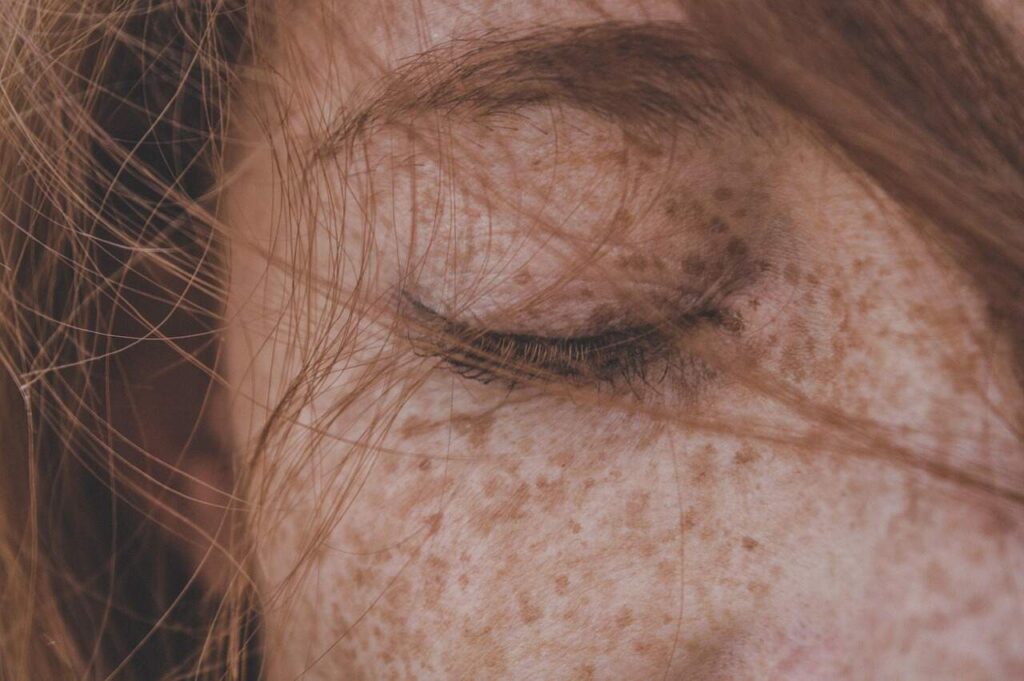
Dermatologists insist on applying sunscreen daily, this is because the benefits of wearing sunscreen go far beyond preventing sunburn. From protecting against harmful UV rays to reducing premature ageing, sunscreen is a must-have for healthy, glowing skin.
Even if you’re indoors, exposed to indirect sunlight, or facing cloudy weather, daily sunscreen shields your skin from long-term damage. Many skip it due to white casts or heavy textures, but the advantages far outweigh these minor issues. In this article, we explore the top 10 benefits of wearing sunscreen daily and why consistent use is vital for radiant youthful skin.

Source: Pixabay
Sunburns cause the skin to become thin, which makes it transparent and more susceptible to bruising. When you have a sunburn, your skin may experience forms of redness, itching, peeling, and swelling. The UVB rays from the sun cause damage to your skin through sunburn. These burns can turn to blisters, which may escalate to skin cancer if not properly managed. According to the American Academy of Family Physicians, daily sunscreen use reduces the incidence of squamous cell carcinoma. (AAFP)

Source: Pixabay
The benefits of sunscreen go beyond beauty purposes and have health benefits as well. Using sunscreen daily shields your skin from various forms of skin damage, which could lead to skin cancer. Skin cancer is mainly caused by excessive exposure to ultraviolet (UV) radiation from the sun. Applying quality sunscreens can help to protect your skin from this harmful exposure and reduce the risk of developing such cancer. Studies show that regular sunscreen use helps reduce DNA damage from UV rays. (Cancer Australia)

Source: Pixabay
Every woman loves young, vibrant, and healthy‑looking skin. One key benefit of incorporating sunscreen into your skincare routine is that it may take out any sign of aging, and keep your skin looking vibrant. You do not want to start thinking about how to take care of aging signs on your skin when they are already glaring. This occurs when the UV radiation breaks down collagen and elastin fibres in the skin, which causes your skin to lose its elasticity and firmness. A survey found daily sunscreen users had significantly fewer aging signs. (Clinic Advisor) Hence, sunscreen is one of the best preventions you will have, and constant application does the trick. Your skin is shielded from aging symptoms such as wrinkles, sun spots, hyper-pigmentation or dry skin.
Without sunscreen, your skin will be exposed to sun damage, which can cause uneven skin textures and dull, lifeless or rough skin. The skin is a living, breathing component of your body that can mend itself. As soon as you protect it from sun damage, it can produce new collagen and take on a thicker, smoother texture.

Source: Pixabay
Sun exposure can trigger harsh damage to the skin such as hyperpigmentation, leading to dark spots and uneven skin tone. Worst-case scenario, your acne doesn’t leave. Unprotected exposure to the sun’s rays can visibly tan your skin, causing blotchy skin and hyperpigmentation at times. The American Academy of Dermatology confirms that sunblock can protect, prevent, and help clear current dark spots, but it needs to be worn daily, and correctly, to be effective. With the right sunscreen and constant application of the same, you will avoid these skin problems and promote the health of your skin. You can read our full article on daily sun protection routines for glowing skin.
Skin proteins such as collagen, keratin, and elastin are protected where sunscreen is regularly applied. These proteins keep your skin smooth and healthy. The ingredients in sunscreen lotions help to enhance the activities of this protein. Skin conditions such as cutaneous lupus and rosacea can worsen with even a little bit of unprotected sun exposure. Also, medications like doxycycline and hydrochlorothiazide can increase the skin’s sensitivity to the sun and make it more likely to burn. Wearing sunscreen every day is a key benefit that helps to protect against these reactions.

Source: Pixabay
Melasma is a photosensitive condition that makes brown or grey patches appear on the face. According to a World Health Organization report, photosensitive conditions such as melasma and post‑inflammatory hyperpigmentation (PIH) are aggravated by exposure to ultraviolet (UV) rays and visible light, making sunscreen an essential component of treatment. (WHO CDN) This is especially true in the skin colors of patients who are less likely to use photoprotection, even if diagnosed with these photo-exacerbated conditions. Sunscreen for hyperpigmented skin is essential because it protects your skin from further sun damage.

Source: Pixabay
As sunscreens protect the skin from harmful sun rays, they also contain ingredients that keep the skin moisturized. Although moisturizers and sunscreens are different, there are some similarities between the two. Presently, sunscreens can contain moisturising agents, and moisturisers can contain SPF. Some of the most common moisturizing ingredients added to sunscreens include ceramides, hyaluronic acid, and squalene. These ingredients increase the skin’s water content, improve skin barrier function, and seal in moisture. Today’s sunscreens may also include other beneficial active ingredients, such as the antioxidants niacinamide, vitamin C, and vitamin E, which have moisturising properties and help prevent skin damage. Thus, your sunscreen is more than just sunscreen. Some sunscreen formulas have similar benefits to moisturisers, and both products aim to improve your overall skin health.

Source: Pexels
There’s nothing wrong with getting a little tan on occasion. However, excessive tanning can expose your skin to harmful UV rays, putting it at risk. Wearing sunscreen, whether chemical or physical, can protect against photoaging and skin cancer caused by the sun’s rays. It may still be possible to get a slight tan even if you do wear sunscreen. However, deliberate tanning is not considered safe.
In the short term, your skin responds to sun exposure by becoming inflamed. As a result of sunburn, your skin adapts by tanning. The more prolonged your exposure, the more severe a burn may be. Wearing a broad-spectrum sunscreen with the right SPF can help minimize this type of damage. Also, ensure to reapply your sunscreen every 2-4 hours or right after swimming or sweating

Source: Pexels
Finally, ensure that your sunscreen is waterproof. Apply it 15-30 minutes before going out in the sun. Using a sunscreen that contains essential ingredients like titanium dioxide and avobenzone will reduce the risk of blotches on your face and penetrate your skin’s barriers, leaving it healthy and vibrant.
If you’re tempted to skip sunscreen because it leaves a white cast on your skin, try a tinted sunscreen that blends in with your natural skin tone. As you step out today or take that trip, don’t forget to apply your sunscreen and put an extra tube in your bag for application; your skin will thank you for the benefits!
The ability of sunscreen to shield the skin from harmful ultraviolet (UV) radiation is one of its most obvious advantages. UV radiation is divided into two types: UVA (long-wave rays that penetrate deep into the skin, causing premature aging and long-term damage) and UVB (short-wave rays that primarily affect the skin’s surface, causing sunburn and increasing the risk of skin cancer). Using a broad‑spectrum sunscreen helps protect against both, reducing the chances of sunburn, early aging, and serious skin conditions.
Dermatologists believe that everyone, regardless of skin tone, should use sunscreen every day. According to GoodRx’s dermatologist-backed guide, sunscreen is the cornerstone of every effective skincare routine. Whether you’re indoors, outdoors, or under cloudy skies, UV rays still reach your skin, so daily protection is non-negotiable.
To wrap up, wearing sunscreen daily is essential for maintaining healthy, glowing skin. By protecting against harmful UV radiation and offering moisturizing properties, sunscreen ensures your skin stays vibrant and youthful. Incorporating daily sunscreen use into your skincare routine is a simple yet powerful step that dermatologists universally recommend for long-term skin protection and radiance. Your skin will undoubtedly thank you for the consistent care and protection sunscreen provides.